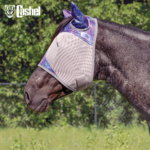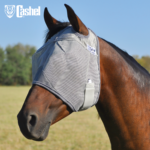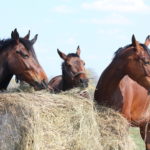
Antioxidants are substances that protect against free radicals. “Radical” is a chemical term-and an appropriate one at that. It’s an atom or a molecule that has an odd number of electrons in its outer shell. Electrons circle the nucleus of an atom like planets around the sun, and at set distances from the nucleus, “orbits” occur. The atom or molecule is most stable when the outer orbit contains as many electrons as it can hold (always an even number), or at least has an even number. Atoms or molecules that are missing an electron from the shell have an odd number, are highly unstable, and are called radicals.
Free radicals careen around in the body hunting for electrons to stabilize themselves. When one free radical “robs” an electron from another molecule, it turns that donor molecule into another free radical. The result of all this organic thievery, gunplay and mutilation of molecules is eventual cell damage, including to DNA, or death.
Think of free radicals as micro cannon balls. Antioxidants are substances that can trap/bind a free radical and stabilize it to end the chain reaction. Once an antioxidant has done this, it loses its neutralizing capacity, but even though the “used” antioxidant now also has an uneven number of electrons, because of the complex way it has bound the free radical, it won’t produce any further damage.
You’ve probably heard that antioxidants help protect against radiation damage, drugs or dangerous chemicals in the environment and in foods. While that’s true, the major call for their services comes from processes that are perfectly normal in the day-to-day function of the body. Just burning energy from food produces free radicals, and the more the body burns, the more are produced. So requirements increase with exercise.
Your horse’s body also uses lethal free radicals to deal with the billions of organisms trying to attack his body through the eyes, respiratory tract, digestive tract, urinary tract, reproductive tract, and even a tiny break in the skin. Dying or abnormal cells (such as cancer) are also disposed of by free-radical attack. So, while environmental toxins aren’t good, your horse’s body has plenty to deal with from routine processes that generate free radicals.
Skeptics think that horses did just fine before antioxidants were discovered, so why start feeding them now. To a large extent, that’s exactly right. However, “olden day” horses had ready access to what is probably the best source of antioxidants out there-fresh pasture.
If that’s still true for your horse, you can move on to the next article. For most horses, though, access to fresh grass is limited at best.
Dietary antioxidants are in two general categories-nutrients that are an essential part of your horse’s diet and those naturally present in plants and foods but not an essential part of the diet. The chart above lists essential nutrients your horse needs in his diet. The second category includes things like milk thistle seed, berries, grapeseed extract, bioflavonoids (such as hesperidin and rutin), and anti-inflammatory herbs like boswellia and curcumin.
Radical Thinking
• Antioxidants protect against free radicals, which contribute to tissue breakdown at the cellular level.
• Horses not on good pasture as their main diet probably need antioxidant supplementation.
• Hard-working horses need more supplementation because the more food a horse burns, the more free radicals are produced.
• Most horses can use supplements of vitamin E and selenium.
Does Your Horse Need Antioxidants?
Every living thing needs antioxidants, but can get all the antioxidant action needed in most cases if levels of the nutrients in the chart above are adequate in the diet. These vitamins and minerals have other jobs to do too, so they can’t be ignored. A hard-working horse eating at least 5 to 6 pounds per day of a highly supplemented grain is probably at least meeting his minimal requirements for these nutrients, except omega-3 fatty acids, vitamin E, and selenium.
Unless the horse has access to plenty of fresh grass, supplementing with a minimum of 1,000 IU/day of vitamin E is a good idea. Best sources are either human soft gelcaps of E in oil (just toss in the feed), Uckele’s Liquid E-50 (also an E in oil, see www.uckele.com) or a water-soluble vitamin E like Elevate W.S. (Kentucky Performance products, www.kppusa.com).
Most horses can also use at least an additional 1 mg/day of selenium. Adding whole, freshly ground or ground stabilized flaxseed to your horse’s daily diet is also a good idea. The ground stabilized flax products, like those from HorseTech (www.horsetech.com) or Omega Fields (www.omegafields.com), will retain their potency for several months when kept carefully sealed and protected from excessive heat or moisture. Feed 3 to 6 ounces per day.
Horses whose diets are not well supplemented or those in heavy work may need their intake boosted over maintenance levels. Consider more comprehensive formulas, which includes other vitamins and minerals, such as Antioxidant Concentrate (www.vita-key.com) or basically the same formula with some flax added with Preox (www.horsetech.com). Some innovative equine supplements that contain high levels of naturally occurring plant antioxidants include Phyto-Quench (www.uckele.com) or Omega Anti-Oxidant (www.omegafields.com).

Equine Research on Antioxidants
Though equine research dollars are hard to come by, often making it difficult to find horse-specific research, there are some revealing antioxidant studies.
Horses with lower levels of antioxidants in their blood show higher markers of oxidative damage after exercise (European Journal of Applied Physiology, December 2005). Plant antioxidants extracted from beans may have antioxidant activity in equine blood equivalent to vitamin E (Food Chemistry and Toxicology, April 2005). Horses with obstructive airway disease (“heaves” or allergic lung disease) have been found to benefit from antioxidant supplementation (Journal of Nutrition, August 2004).
The importance of high-dose vitamin E for hard-working horses is so widely recognized among endurance riders that researchers weren’t able to find any who would allow their horses to do an endurance ride without it as part of an experiment (Journal of Animal Science, February 2004). Flaxseed, rich in omega-3 fatty acids and other plant antioxidants, was found to help control skin symptoms of “sweet itch,” an allergic reaction to the bite of Culicoides (Canadian Journal of Veterinary Research, October 2002). Researchers are also looking into the ability of omega-3 fatty acids to help protect against bacterial toxins.





